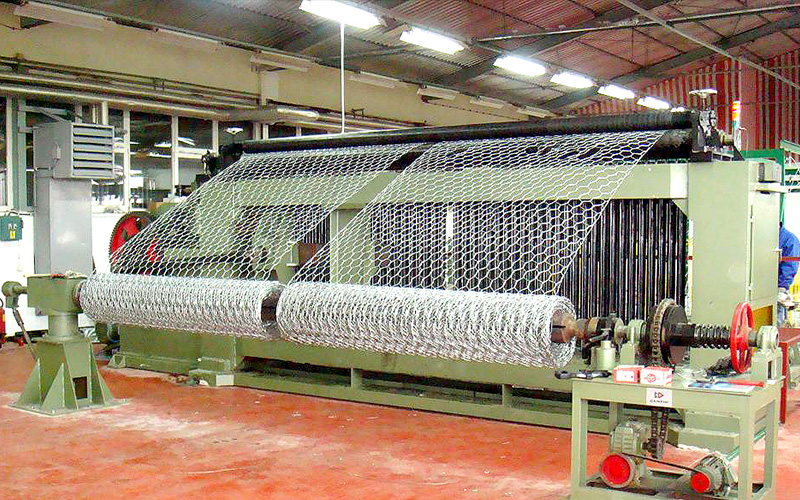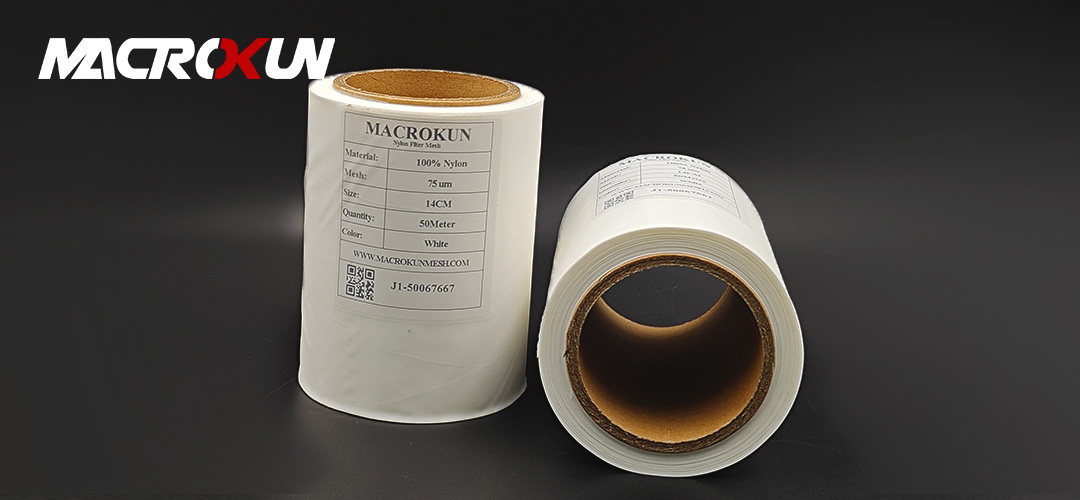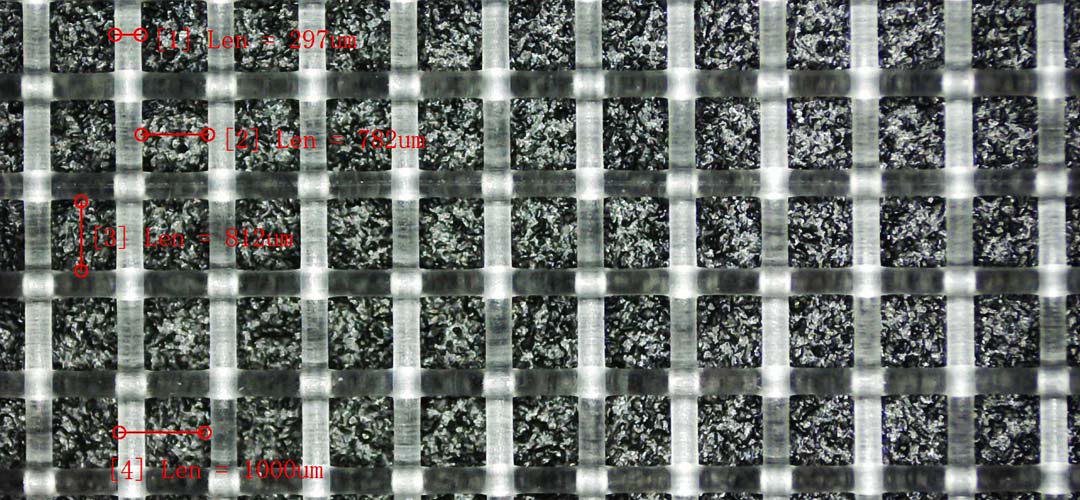Micron mesh fabric is a popular choice for filtration systems due to its numerous benefits. One of the top advantages of using micron mesh fabric is its ability to increase filtration efficiency. By using a finer mesh fabric, particles are captured more effectively, resulting in cleaner and purer filtrate.
The tight weave of micron mesh fabric allows for smaller particles to be trapped, ensuring that the filtration system is able to remove even the tiniest impurities from the fluid being filtered. This is especially important in industries where purity is crucial, such as pharmaceuticals, food and beverage, and electronics manufacturing.
In addition to capturing smaller particles, micron mesh fabric also offers a higher flow rate compared to other types of filter media. This means that filtration systems using micron mesh fabric can process larger volumes of fluid in a shorter amount of time, increasing overall efficiency and productivity.

Furthermore, micron mesh fabric is highly durable and long-lasting, making it a cost-effective choice for filtration systems. Its resistance to chemicals and high temperatures ensures that it can withstand harsh operating conditions without compromising its filtration performance.
Another benefit of using micron mesh fabric in filtration systems is its versatility. Micron mesh fabric can be customized to meet specific filtration requirements, allowing for greater flexibility in design and application. Whether filtering liquids, gases, or solids, micron mesh fabric can be tailored to suit a wide range of filtration needs.
Moreover, micron mesh fabric is easy to clean and maintain, reducing downtime and maintenance costs for filtration systems. Its smooth surface allows for quick and efficient cleaning, ensuring that the filtration system remains in optimal condition for longer periods of time.
Overall, the increased filtration efficiency, higher flow rate, durability, versatility, and ease of maintenance make micron mesh fabric an excellent choice for filtration systems in various industries. Its ability to capture smaller particles and provide a cleaner filtrate ensures that processes run smoothly and efficiently, leading to improved product quality and reduced waste.
In conclusion, the benefits of using micron mesh fabric in filtration systems are clear. Its superior filtration efficiency, high flow rate, durability, versatility, and ease of maintenance make it a valuable investment for industries that require precise and reliable filtration. By choosing micron mesh fabric for filtration systems, businesses can ensure that their processes are optimized for maximum performance and efficiency.
Micron mesh fabric is a popular choice for filtration systems due to its numerous benefits. One of the key advantages of using micron mesh fabric is its enhanced durability. This fabric is designed to withstand harsh conditions and high pressures, making it ideal for use in industrial filtration applications.
One of the main reasons why micron mesh fabric is so durable is its construction. This fabric is typically made from high-quality materials such as stainless steel or polyester, which are known for their strength and resilience. These materials are able to withstand the wear and tear of continuous use, making micron mesh fabric a long-lasting and reliable option for filtration systems.
In addition to its durable construction, micron mesh fabric is also resistant to corrosion and chemical damage. This means that it can be used in a wide range of environments, including those with high levels of moisture or exposure to corrosive substances. This makes micron mesh fabric a versatile choice for filtration systems that need to operate in challenging conditions.
Another benefit of using micron mesh fabric in filtration systems is its ability to provide consistent and reliable filtration performance. The precise design of the mesh allows for the efficient removal of particles and contaminants from liquids or gases, ensuring that the filtration system operates at optimal levels. This can help to improve the overall efficiency of the system and reduce the risk of equipment failure or downtime.
Furthermore, micron mesh fabric is easy to clean and maintain, which can help to extend the lifespan of the filtration system. Regular cleaning and maintenance of the fabric can help to prevent clogs and blockages, ensuring that the system continues to operate smoothly and effectively. This can also help to reduce the need for costly repairs or replacements, saving time and money in the long run.
Overall, the enhanced durability of micron mesh fabric makes it a top choice for filtration systems in a wide range of industries. Its strong construction, resistance to corrosion, and reliable performance make it a valuable investment for businesses looking to improve the efficiency and longevity of their filtration systems. By choosing micron mesh fabric, businesses can benefit from a durable and reliable filtration solution that will provide consistent performance for years to come.
Micron mesh fabric is a versatile material that has gained popularity in various industries, particularly in filtration systems. One of the key benefits of using micron mesh fabric in filtration systems is the improved airflow it provides. This is crucial in ensuring the efficiency and effectiveness of the filtration process.
When it comes to filtration systems, airflow is a critical factor that can significantly impact the overall performance. Traditional filter materials can often restrict airflow, leading to reduced efficiency and increased energy consumption. Micron mesh fabric, on the other hand, offers a high level of permeability that allows for optimal airflow while still effectively capturing particles.
The unique structure of micron mesh fabric allows air to pass through easily, minimizing pressure drop and ensuring consistent airflow throughout the filtration system. This not only improves the overall efficiency of the system but also helps to reduce energy costs by requiring less power to maintain airflow.
In addition to improved airflow, micron mesh fabric also offers superior filtration capabilities. The fine mesh structure of the fabric allows for the capture of particles as small as a few microns, ensuring that even the tiniest contaminants are removed from the air or liquid being filtered.
This level of filtration efficiency is essential in many industries, such as pharmaceuticals, food and beverage, and electronics, where even the smallest particles can have a significant impact on product quality and safety. By using micron mesh fabric in filtration systems, companies can ensure that their products meet the highest standards of purity and cleanliness.
Furthermore, micron mesh fabric is highly durable and long-lasting, making it a cost-effective choice for filtration systems. Unlike traditional filter materials that may need frequent replacement due to clogging or wear, micron mesh fabric can withstand high temperatures, corrosive chemicals, and abrasive particles without losing its effectiveness.
This durability not only reduces maintenance costs but also minimizes downtime and production interruptions, allowing businesses to operate smoothly and efficiently. With micron mesh fabric, companies can enjoy peace of mind knowing that their filtration systems are reliable and consistent in performance.
Another benefit of using micron mesh fabric in filtration systems is its versatility. The fabric can be customized to meet specific filtration requirements, whether it’s for air, water, or liquid filtration. With a wide range of mesh sizes and materials available, companies can tailor their filtration systems to achieve the desired level of filtration efficiency and particle capture.

Whether it’s removing contaminants from industrial wastewater, purifying air in cleanrooms, or ensuring product quality in manufacturing processes, micron mesh fabric offers a flexible and effective solution for a variety of filtration needs.
In conclusion, the benefits of using micron mesh fabric in filtration systems are clear. From improved airflow and filtration efficiency to durability and versatility, this material offers a range of advantages that can help businesses enhance the performance of their filtration systems and achieve optimal results. By incorporating micron mesh fabric into their filtration processes, companies can ensure cleaner, safer, and more efficient operations across a wide range of industries.
Micron mesh fabric is a popular choice for filtration systems due to its numerous benefits. One of the top advantages of using micron mesh fabric is cost savings. By investing in high-quality micron mesh fabric for filtration systems, businesses can save money in the long run.
One way that micron mesh fabric helps save costs is by its durability. Micron mesh fabric is made from strong materials that can withstand harsh conditions and high pressures. This means that businesses won’t have to constantly replace their filtration systems due to wear and tear. By investing in micron mesh fabric, businesses can save money on maintenance and replacement costs.
Additionally, micron mesh fabric is highly efficient at filtering out particles of various sizes. This means that businesses can rely on micron mesh fabric to effectively remove contaminants from their filtration systems, reducing the need for additional filtration steps or treatments. This efficiency can lead to cost savings by streamlining the filtration process and reducing the amount of resources needed for filtration.
| Series | Mesh Count (/cm) |
Mesh Count (/inch) |
Thread Dia (um) |
Mesh Opening (um) |
Thickness (um) |
Weight (g/m2) |
| NL4/1950 | 4 | 10 | 550 | 1950 | 1100 | 307 |
| NL5/1500 | 5 | 13 | 500 | 1500 | 1000 | 318 |
| NL6/1267 | 6 | 15 | 400 | 1267 | 800 | 244 |
| NL7/1079 | 7 | 18 | 350 | 1079 | 700 | 218 |
| NL8/900 | 8 | 20 | 350 | 900 | 700 | 249 |
| NL9/861 | 9 | 23 | 250 | 861 | 500 | 143 |
| NL9/811 | 9 | 23 | 300 | 811 | 600 | 206 |
| NL10/750 | 10 | 25 | 250 | 750 | 500 | 159 |
| NL10/700 | 10 | 25 | 300 | 700 | 600 | 229 |
| NL12/583 | 12 | 30 | 250 | 583 | 500 | 191 |
| NL12/533 | 12 | 30 | 300 | 533 | 600 | 274 |
| NL14/514 | 14 | 36 | 200 | 514 | 340 | 142 |
| NL16/425 | 16 | 40 | 200 | 425 | 340 | 160 |
| NL20/350 | 20 | 50 | 150 | 350 | 255 | 113 |
| NL20/300 | 20 | 50 | 200 | 300 | 340 | 200 |
| NL24/267 | 24 | 60 | 150 | 267 | 255 | 135 |
| NL28/237 | 28 | 70 | 120 | 237 | 204 | 101 |
| NL30/213 | 30 | 76 | 120 | 213 | 204 | 110 |
| NL32/213 | 32 | 80 | 100 | 213 | 170 | 80 |
| NL36/178 | 36 | 90 | 100 | 178 | 170 | 90 |
| NL40/150 | 40 | 100 | 100 | 150 | 170 | 100 |
| NL43/153 | 43 | 110 | 80 | 153 | 136 | 70 |
| NL48/128 | 48 | 120 | 80 | 128 | 136 | 77 |
| NL56/119 | 56 | 140 | 60 | 119 | 102 | 50 |
| NL64/96 | 64 | 160 | 60 | 96 | 102 | 58 |
| NL72/89 | 72 | 180 | 50 | 89 | 85 | 45 |
| NL80/75 | 80 | 200 | 50 | 75 | 85 | 50 |
| NL100/57 | 100 | 250 | 43 | 57 | 73 | 46 |
| NL110/48 | 110 | 280 | 43 | 48 | 73 | 52 |
| NL120/48 | 120 | 300 | 35 | 48 | 60 | 37 |
| NL120/40 | 120 | 300 | 43 | 40 | 73 | 55 |
| NL130/42 | 130 | 330 | 35 | 42 | 60 | 40 |
| NL130/34 | 130 | 330 | 43 | 34 | 73 | 61 |
| NL140/36 | 140 | 350 | 35 | 36 | 60 | 43 |
| NL157/25 | 157 | 400 | 43 | 25 | 73 | 74 |
| NL180/20 | 180 | 450 | 39 | 20 | 66 | 68 |
| NL200/15 | 200 | 500 | 39 | 15 | 66 | 76 |
| NL220/10 | 220 | 550 | 39 | 10 | 66 | 84 |
| NL240/5 | 240 | 600 | 39 | 5 | 66 | 91 |
Furthermore, micron mesh fabric is easy to clean and maintain. Unlike other types of filtration materials that require frequent cleaning or replacement, micron mesh fabric can be easily cleaned and reused multiple times. This not only saves businesses money on replacement costs but also reduces downtime for maintenance, allowing businesses to operate more efficiently.
Another cost-saving benefit of using micron mesh fabric in filtration systems is its versatility. Micron mesh fabric can be customized to fit specific filtration needs, making it a versatile option for businesses in various industries. Whether a business needs to filter out large particles or tiny contaminants, micron mesh fabric can be tailored to meet those requirements, eliminating the need for multiple filtration systems.
In addition to cost savings on maintenance and replacement, businesses can also save money on energy costs by using micron mesh fabric in their filtration systems. Micron mesh fabric is designed to maximize airflow while still effectively filtering out particles, reducing the energy needed to operate the filtration system. This energy efficiency can lead to significant cost savings over time, making micron mesh fabric a cost-effective choice for businesses looking to reduce their operational expenses.

Overall, the benefits of using micron mesh fabric in filtration systems are clear. From cost savings on maintenance and replacement to energy efficiency and versatility, micron mesh fabric offers businesses a reliable and cost-effective solution for their filtration needs. By investing in high-quality micron mesh fabric, businesses can not only save money but also improve the efficiency and effectiveness of their filtration systems.
Pre: 100um Mesh Explained: Best Practices for Filtration and Separation
Next: Why Nylon Mesh for Filter Sieves Is Essential in the Food Industry

MACROKUN has established long-term and stable cooperative relations with many transportation companies such as China Post, DHL, FEDEX, USPS, UPS, etc. Of course, MACROKUN can also provide air and sea transportation. The powerful logistics system enables all MACROKUN'S Printing Mesh, Filter Mesh and Filter Bags and so on to be easily and efficiently transported to any place. For quotes and inquiries, please email our sales team.





